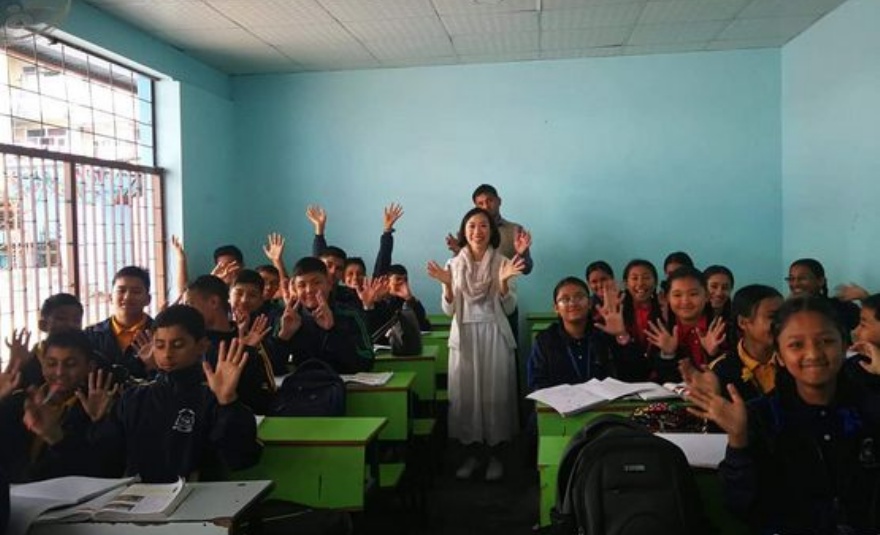Students get a taste of Nepal

Our students have been enjoying the taste of a completely different culture thanks to an initiative aptly named Connecting Classrooms.
All schools within the West Norfolk Academies Trust are taking part in the programme which is designed to explore the wider world by linking with teachers and pupils from different continents.
And Marshland High is linked with the Navajeewan Educational Academy in Kathmandu, Nepal, and a range of projects have been created on the theme of food sustainability.
Assistant headteacher Claire Whitehouse is the international rep for the project and is no stranger to Nepal having worked in the country as a volunteer teacher when she completed university.
“Having the chance to immerse myself in Nepalese life and culture showed me not only what an amazing country Nepal is, but also what kind, generous and supportive people live there.
“It is so important that our students have the opportunity to engage with international work and get the opportunity to be inquisitive and learn about different places and cultures, leaving our students open-minded, respectful and knowledgeable about our international community,” she said.
“We aim to develop knowledge of where our food comes from, explain the impact of food production on the environment and to make informed choices on the food we eat,” she added.
Students were also asked to discuss foods typical to the UK and had to decide on one recipe per form to send to Nepal for the students there to choose one they might want to try.
“Our partner school asked the students to share recipes of Nepalese food to send to our students and recipes were discussed in a shared assembly with our counterparts. It was important to have an understanding of cultural differences in sustainable food production and to be respectful of those cultures,” said Mrs Whitehouse.
“Before the holidays we asked our Year 7 students to consider applying to be International Ambassadors for the school and they had a formal meeting with their Nepalese counterparts. They prepared presentations on aspects of school life, culture and agriculture.
“They found that, despite both countries being very different culturally, they were very similar in the casual clothing they wear, daily routines, hobbies and sports they enjoy.”
The programme is part of the trust-wide Connecting Classrooms project which is being led by Karen Williams, who has secured funding from the British Council, for all the trust’s 11 schools to take part.
